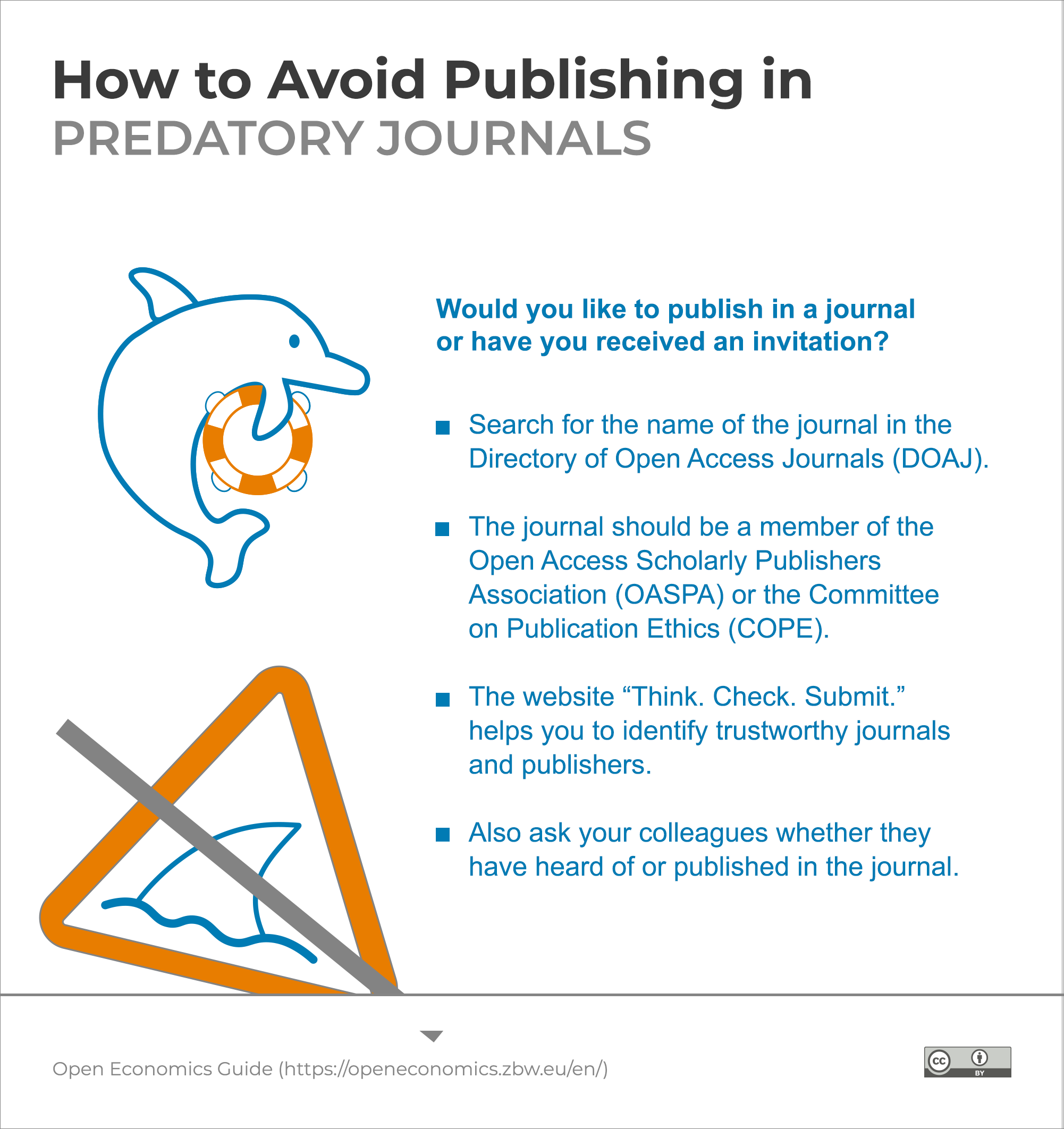Predatory Publishing and Preventing it
Predatory publishing is a fraudulent business model pursued by certain Open Access publishers. They appear to be fully fledged scientific specialist journals. They collect the article processing charges that are customary in the Open Access segment from the authors, but do not carry out any editorial and journalistic services, such as a proper Peer Review, that one would expect from a reputable specialist journal.
If you go through the following checklist, you will have the greatest possible certainty that you are not publishing in a predatory journal by mistake:
- If you receive spam emails with an invitation to publish in a journal, this is an initial indication of a poor reputation. You should also be alert to very general references to your research (for example, "I saw your paper on the xy conference website and it fits well in our journal."). Search for the name of the journal in the Directory of Open Access Journals (DOAJ). This so-called white list contains only Open Access journals that have undergone an adequate quality assurance procedure.
- You should also check whether the journal is a member of the Open Access Scholarly Publishers Association (OASPA) or the Committee on Publication Ethics (COPE). Do not trust the details on the websites of the journals, but check this directly in the databases of the organisations mentioned. This is because membership of OASPA or COPE is an indication of the good reputation of the journal.
- The website “Think. Check. Submit.” offers further criteria for the evaluation of the reputation of a journal, which helps researchers to identify trustworthy journals and publishers.
- Also ask your colleagues if they have heard about the journal, and tell them about this journal if you are suspicious.

If you would like further information: handout on Predatory Publishing (PDF) of the ZBW.
Furthermore, you can recognize serious journals because they meet the (revised) principles of transparency identified by DOAJ, COPE, OASPA and the World Association of Medical Editors (WAME).